by Mary Coffey AMMM Ireland 22.01.2025
Editor’s Note: Mary gave me this story some months ago. I thought it was appropriate as we are starting out a new year on our pilgrimage of hope.
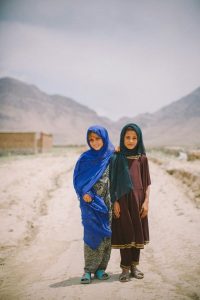 Two parents, five brothers and two sisters. These are members of Karima’s family. Karima is a young Afghan woman who had previously shared my home in Ireland, and whom I love dearly. Her family are under threat from the Taliban. The Taliban (or the Islamic Emirate of Afghanistan) have given instruction to their local members” to find all members of Karima’s family as soon as possible, arrest them alive, or destroy them, as they have worked with infidels against Islam. And God bless you.” (Taliban’s words. The “infidels” were an American development organisation working with local Afghan people.)
Two parents, five brothers and two sisters. These are members of Karima’s family. Karima is a young Afghan woman who had previously shared my home in Ireland, and whom I love dearly. Her family are under threat from the Taliban. The Taliban (or the Islamic Emirate of Afghanistan) have given instruction to their local members” to find all members of Karima’s family as soon as possible, arrest them alive, or destroy them, as they have worked with infidels against Islam. And God bless you.” (Taliban’s words. The “infidels” were an American development organisation working with local Afghan people.)
An opportunity had arisen to bring them to Ireland. What to do now? I had a bare five weeks before setting off in August on a long holiday to Tanzania and Kenya, visiting MMMs. I reached out to a key contact for encouragement. The advice was that what I envisaged was unworkable. I accepted that advice and went to bed. The next day I went to Mass. Our now retired parish priest, Fr John, has for over twenty years nourished my prayer with his love of scripture and his short and simple introduction to each reading. He always ‘primed’ me to listen more carefully and be to ready to receive the Word. On this day he introduced the reading from the Book of Exodus by saying that God had such compassion for the plight of his people in captivity in Egypt that he declared he had the strength to do something about it. And the passage from Exodus (3:17) was: God said to Moses “…I declare that I will bring you up out of the misery of Egypt, to the land of the Canaanites, … a land flowing with milk and honey.’ Exodus 3:17. And my own resolve was called forth! “I have resolved to bring you up out of Afghanistan where you were oppressed and in hiding for fear of your lives.”
A new Community Sponsorship Group was needed to support Karima’s family. I needed to gather people with new vision and new energy, before leaving for Tanzania. I was “out on the highways and byways, inviting people to the wedding feast,” looking for people to commit to accompanying this family for the first two years of their lives in Ireland. A detailed Settlement Plan needed to be drawn up. It should have been a collaborative effort, but I hadn’t time for collaboration! Just get it done. We were expected to raise a minimum of €10,000. There was no time for fundraising, but I managed to convince the Irish Refugee Protection Programme, IRPP, to trust me on that one. The money will be found. There is an acute housing shortage in Ireland and finding a house at short notice to provide a home for a refugee family of 10 people was well-nigh impossible. Without a house, our application would be rejected. However, I had “set my hand to the plough” and was not going to turn back now. I had real difficulty in convincing the IRPP that I was serious when I said that I intend to vacate my own home and go to stay with a friend so that our Community Sponsorship Group, which we call “Haven of Hope,” will be able to welcome Karima’s family.
Then we got word to expect their arrival on November 22nd. It was a day of great joy, but they had to leave Afghanistan for the protection of UNHCR in Iran. Some people see my decision to give up my home as extraordinary. I disagree. I found a way to help this large family who are under threat from Taliban, and I trust that I will be back in my home in six to nine months. A house will be found for them. Never again in my lifetime will I have such an opportunity to contribute to the transformation of the lives of ten people (including Karima) beyond their wildest imagining. The inconvenience to me is minimal in that context. Deep joy and contentment are mine.
by Sr. Mary Hanley MMM Ireland 18.01.2025
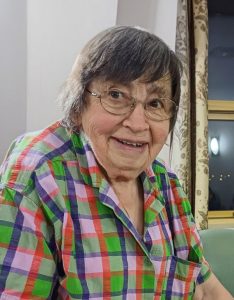 On December 13th last year I was standing at a bus stop down in Drogheda, waiting for the local bus that would bring me back closer to the convent. A man in the queue looked familiar. He asked me:” Do you still go up to the Capuchin Day Centre in Bow Street, Dublin?” “No”, I explained, “I have arthritis, and I am waiting fir a hip replacement. But after the operation, I will go there again.”
On December 13th last year I was standing at a bus stop down in Drogheda, waiting for the local bus that would bring me back closer to the convent. A man in the queue looked familiar. He asked me:” Do you still go up to the Capuchin Day Centre in Bow Street, Dublin?” “No”, I explained, “I have arthritis, and I am waiting fir a hip replacement. But after the operation, I will go there again.”
He said: “You worked well when you went there.” I was curious as to how he knew I worked there but I just said: “Thank you, some days I worked well. Then he said: “I was happy to go there on Wednesdays and collect the bag of food. It helped me for the following week.”
He went on to say how the staff there were wonderful, and he mentioned particularly the men and women at the door. These are five security people who are multitasking. They greet the people coming to the Centre, they get a particular item for them, usually milk, brown bread, clothing or toys. People’s needs are met as far as is possible. These five people also maintain the plumbing, man the showers, oversee the waste management and the recycling.
Our conversation continued. I saw that he had a bag full of food and presents, with a Christmas cake on the top. He said he was going to see his daughter in a nearby town/village. He was wearing a red coat, and he laughed: “I will do Santa Claus in three prisons this December!” He told me that he will call into the Capuchin Day Centre “just to greet them” and will also call to see Fr. Peter McVerry. (The McVerry Trust works with the homeless.)
Here was a man who benefited from the Capuchin Centre when times were tough. He is now giving back to the community. This is a man who seems well integrated, who appreciates the ordinary things in life and is at peace with people, thinking largely of others.
This story is typical of some of the people who come to the Centre. You could meet them there for a few months and then suddenly they are off the radar. Many have moved on to a better life.
One day, a man came in, now ell dressed and said: “Thank you for the food and hospitality for the past eighteen months. I am now off the drink, and I have a job.” Others receive food for a few months and when they get work, they come back and make a donation. Others, sadly, may not have had such a good experience.
In December 2024 the Centre gave out over 5500 vouchers, each worth €50. These can be used for food or clothe, but not alcohol. Some of the people interviewed in the queue at the Centre spoke of the welcome they got every time they came to the Centre.
As everybody knows, the services are broad-based. It is staffed by a nurse six days a week. Other services are given on specific days, such as doctor, dentist, chiropody, optician and hairdresser. In my eyes it is a very well-run Centre. Some days 1,000 dinners are served, and 1,400 food parcels are given out each Wednesday. Brother Kevin Crowley has truly left a legacy. Please God it will continue in the tru spirit of the Centre –‘No one will go hungry.’
I am happy to be associated with the work the Centre provides. My service as a volunteer is only a drop in the ocean. Please God I will return there as a waitress at lunchtime and listen to anyone who wants to talk.
by Sr. Sheila Devane MMM Ireland 15.01.2025
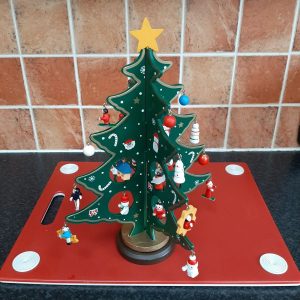 Today is called “Nollaig na mBan” in Irish or The Women’s Christmas.
Today is called “Nollaig na mBan” in Irish or The Women’s Christmas.
There are many traditions associated with this day. The Epiphany calls us to remember the Three Magi or wise men who came from the East to adore the infant Jesus. Here in Ireland it is the day when the women retire from all kitchen work, celebrate with each other and let the men carry out the domestic chores! It is also the day when many families and businesses take down their Christmas decorations.
I am taking down my own decorations – or what still remain after a few small efforts over the past few days. I won’t be removing all my decorations this year – can I tell you why? This is a photo of my wee Christmas tree which is only 11 inches tall and 9 inches wide carrying a star and lovely festive decorations. Sadly this year it holds a very poignant story of innocent people no longer with us and of others still very seriously injured.
On December 20th I was busy doing a whole varity of things in preparation for Christmas and late in the day saw a missed call in my phone from a family member; I was worried wondering was something wrong? Who was sick? Or what? I tried to call a few times, left a voice mail message but my cousin was clearly busy too. Hopefully she was rushing about doing last minute things?
I missed the evening news and when I eventually turned it on there was an extended report of an attack by a single gunman at a Christmas market in a city in East Germany, ambulances, police cars, firebrigades and panicked people were being flashed up on the screen with journalists speaking to shocked onlookers and simulataneous translations happening for the world media. As I was watching aghast Kay rang again; I asked immediately if there was anyone sick in the family and she quickly asked if I were watching the news to which I replied:… “Yes I am looking at the terrible carnage in Germany in a city called Madgeburg.”
Kay went on to tell me that this was why she phoned me earlier in the day; she heard the terrible news, remembered being in Magdeburg in 2016 at the truly wondrous Christmas market and buying me a little Christmas tree believing a very small, portable, ornamental tree would work best for an MMM so that I could take it with me whereever I was going to live next!
This is one ornament that I have always liked and have put up religiously every year; this year I will not be putting it away; I would like to keep it up to remember all those killed, injured and bereaved in that incredible atrocity. I will remember too the many people who helped at the scene, those in the emergency services and since then in hospitals, funeral parlours, churches, mosques, families and neighbourhoods.
Mögen sie alle so gesegnet sein, wie sie es am meisten brauchen.
May they all be blessed in the way they most need
by Nadia Ramoutar MMM Communications Coordinator Ireland 11.01.2025
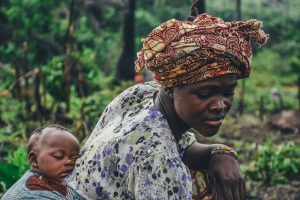 Recently, I was talking to someone and he referred to the Democratic Republic of the Congo (DRC) as one of ‘worst places on earth to be a woman.” He is a surgeon who works with women in poverty and I found this reference disturbing. I decided to research this title to see how a country managed to get such a horrendous designation. What I found was even more disturbing.
Recently, I was talking to someone and he referred to the Democratic Republic of the Congo (DRC) as one of ‘worst places on earth to be a woman.” He is a surgeon who works with women in poverty and I found this reference disturbing. I decided to research this title to see how a country managed to get such a horrendous designation. What I found was even more disturbing.
There is in fact a bit of a battle to get the ultimate title of the very worst place but tragically, a lot of countries in the world are contenders not just DRC. South Sudan, Democratic Republic of the Congo, Central African Republic, Mali and Libya are in the running but without a doubt Afghanistan has recently risen to high ranks as women’s voices have been banned in public spaces and many other legal and social laws.
According to research organizations Georgetown University’s Institute for Women, Peace and Security and Peace Research Institute Oslo state that war is very bad for women. I know that war clearly impacts men who are fighting and are soldiers but it also had a horrific impact on women – which means that it impacts men too. This may all seem obvious but war is often seen as a male oriented impact.
The group also state that ‘women’s rights has improved in some 60 countries, but in deteriorated in many war-torn nations.’ The researchers looked at 167 countries since 2017 when the first Women, Peace and Security Index was compiled, weighing variables such as access to bank accounts, jobs and security. Yemen, Afghanistan, Syria, Pakistan and Iraq were the other countries at the bottom of the ranking.
The new research found deterioration in women’s lives was often linked to security, which worsened in almost 50 countries. I can’t imagine that life in Gaza is anything but hell for women and children now.
Recently we celebrated the Christmas season and thought about Mary and Joseph looking for a safe place for the baby to be born. It is upsetting that so many years later there is no safe place for so many women in the world. My wish for 2025 is that somehow conditions improve for women everywhere not just in places like Sweden, Finland and the Netherlands which are considered the best place to be a woman.
It seems to be a major injustice that where a girl is born determines her level of safety and quality of life as a woman. The work of the MMMs is some of the most remote, war-torn or poor communities in our world continues to try and address such atrocities and without support from our family, friends and donors this would not be possible. So thank you for believing in a more just reality for everyone.
by Sr. Margaret Anne Meyer USA 08.01.2025
May 1966
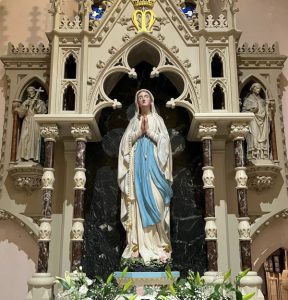 The boat ride back to Dublin from Liverpool was uneventful but the walk in the rain to Bus Áras and the ride to Drogheda seemed exhausting. I was welcomed home in the refectory by a smiling novice, Sister Christine Jones, who did not mind in the least that I was too early for lunch and gave me a huge piece of buttered toast and a hot cup of tea. Her kindness still warms my heart.
The boat ride back to Dublin from Liverpool was uneventful but the walk in the rain to Bus Áras and the ride to Drogheda seemed exhausting. I was welcomed home in the refectory by a smiling novice, Sister Christine Jones, who did not mind in the least that I was too early for lunch and gave me a huge piece of buttered toast and a hot cup of tea. Her kindness still warms my heart.
The Motherhouse was in the throes of celebrating Holy Week. I was all excited to be going to Uganda on Easter Monday but had no notion of how I was travelling. Then the news came to me that Mother Mary wanted me to do a retreat before going to the missions. This would start after Easter. I was disappointed but took it all in stride and prayed the best I could. Sometime after the retreat I was told that I would be flying to Uganda on the 23 of May. In the meantime, a sister Doctor was needed to be of service to a children’s pilgrimage to Lourdes and I was the lucky one chosen to go. I was delighted.
We departed from Dublin airport at the end of April. There were Dominican Fathers leading the pilgrimage and one other Doctor and two Irish Sisters of Charity to mind the large group of sick children ranging in age from nine months to 16 years with various life-threatening conditions. I was given an emergency medical bag. Little did I know how quickly it would come in use. I was called to the aunt of one of the children who was suffering from a heart attack. I told the flight attendant, and she told me to go into the cockpit and tell the captain. I felt like a real highjacker and was scared but the woman needed medical treatment right away. In those days it was customary to give an injection of morphine which I did. I asked the pilot to return the plane to Dublin, but he told me the airport in Wales was closer and that he would land there. Thank God the woman was well treated as I heard later and eventually returned to Ireland. The child’s mother continued on our journey to Lourdes.
I loved looking after the children in Lourdes and was able to join in the candlelight processions at night and go behind the Blessed Sacrament when the priest blessed the sick. One morning I tried to get some milk for the children from the Accueil. I said in my best French “Bainne le do thoil” and they just stared at me. Then I remembered I was speaking Irish and asked for “lait pour les enfants.” I laughed but I did get milk for the children.
Soon it was time to leave. Father took us to the grotto before the plane left at 2 AM. He told us that we had a glimmer of what the life of the Blessed Mother was like. A very ordinary life of feeding the children and changing nappies. I felt close to Our Blessed Mother.
We arrived home in Dublin and went to 7Am Mass. I was looking forward to hearing Mass in English because French was spoken all the time. To my surprise Mass was celebrated in Irish but I said every “agus” there was and was glad to participate a little I went to Rosemount with the intention of visiting Sr. Ita Moore’s sister in Dublin. They were traveling to the USA in a few days and asked her to take some gifts I had bought for my parents at Lourdes. She said she would.
I took the bus to Drogheda and arrived sometime after 10 PM. I was notified that my mother had phoned from New York. I thought it was late and returned the call the next morning. My Father had suffered a severe heart attack, and could I go home? I was very distraught but by the time I received permission to go home, my beloved father had died. The joy of seeing him six months previously sustained me in my deep sorrow. I told my mother I would be on the plane the next day. What follows next is another story.
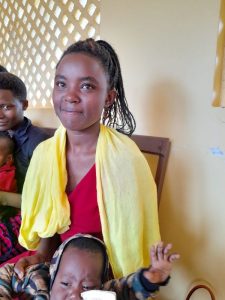 In chatting to Seán, a missionary colleague, the other evening I listened to him quite casually talk of his first mission assignment which like my own was to Tanzania, East Africa.
In chatting to Seán, a missionary colleague, the other evening I listened to him quite casually talk of his first mission assignment which like my own was to Tanzania, East Africa.by Nadia Ramoutar MMM Communications Coordinator Ireland 01.01.2025
 At the end of December, I asked my wonderful team in the Communications Department to pause and reflect on the year gone by to see what they were most proud of and what brought them joy. Their responses were moving and as Sr Sheila wrote “Where do I begin…”. We are so fortunate to love our work so much and to truly enjoy working together for the astounding MMM Sisters.
At the end of December, I asked my wonderful team in the Communications Department to pause and reflect on the year gone by to see what they were most proud of and what brought them joy. Their responses were moving and as Sr Sheila wrote “Where do I begin…”. We are so fortunate to love our work so much and to truly enjoy working together for the astounding MMM Sisters.
There is a wonderful Broadway Musical Song called Seasons of Love. The lyrics say “how can you measure a year?” In minutes? In laughter? But the song recommends that we measure a year in moments of love. Imagine if we can decide in January to deliberately fill our upcoming year with moments of love. We can drop our new years’ resolution of our ill-fated exercise or diet – and decide that in 2025 we will be the most loving we have ever been.
Imagine going to work with people who have committed to being the most loving they can be? Imagine if you family decide this too? Imagine if your doctor, neighbours and people in your community did this for the whole year, how would our world be different?
What would your day look like this January filled with moments of love? Would you be kinder or more compassionate? Would you be more gentle in your thoughts and actions? I hope that you will give this challenge a consideration and decide to make it your focus for the New Year up ahead.
For me, I resolve to dig deep within myself and find a way to be more loving than I currently am. I am not sure how that will feel or what it will look like but I think it is an effort worth making. I invite you to take this challenge too.
In a world filled with people being their most loving selves would we have war? Or Hunger? Or abuse? Would these awful human atrocities just melt away? Would we have no desire to dominate, destroy or harm another?
When we look at the darkness in our world, it is easy to feel fear and to close our hearts just a little bit to protect ourselves in this reality. While I am a realist, I am willing to sprinkle more love on my fear to see if it dissolves it some.
I wish you the very best year possible. Later in the year when I ask my team to reflect again, I hope I can tell them I loved every moment of my year.
by Sr. Jacinta Mahakwe, MMM Nigeria/Brazil 29.12.2024
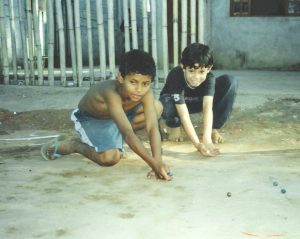 Living in the semi-slum area of Nordeste de Amaralina, Salvador, in Brazil, was one of my best experiences. My neighbourhood, like most others, has its strengths and weaknesses. Besieged by violence of all kinds, the community kept on living their lives, taking one day at a time. Yes, the weekends were fun, with music parades, dancing and anything exciting. The crowd comprises young and older adults celebrating life despite their challenging environment.
Living in the semi-slum area of Nordeste de Amaralina, Salvador, in Brazil, was one of my best experiences. My neighbourhood, like most others, has its strengths and weaknesses. Besieged by violence of all kinds, the community kept on living their lives, taking one day at a time. Yes, the weekends were fun, with music parades, dancing and anything exciting. The crowd comprises young and older adults celebrating life despite their challenging environment.
In the neighbourhood, there is law and order. The local community govern themselves. The people obey the rules. Some rules include no stealing of any kind, no domestic violence and no action that will bring in the police. Though some of these occur and there is a lot of drug-related violence, the people apply the rules, and the offenders are punished according to the stipulations.
I call it my safe space because of a lot of things. Everyone knows everyone. It is like a family of people—the community cares for one another. Walking around the community sounds like an extended family visit. The greetings are more interesting. You hear something like “Good morning, my – child, daughter, son, love, sister, brother, father and mother.”. The warmth expressed in this process is heartwarming. I enjoyed reciprocating all the kind gestures and warm greetings, like taking up the smell of the sheep. Imagine the smile on the face of a woman when she is greeted as “Good morning, mother”. The brilliant response of “Good morning, my daughter.” What will your heart feel knowing that we are a family of people? We don’t have to be related by blood.
I loved going to the neighbourhood because it has everything you can imagine; the sense of togetherness and safety is paramount. A bus to the terminal in the neighbourhood is the safest at night and anytime. Because within the community, one has a sense of a third eye keeping watch and protecting. I loved it!
by Sr. Sheila Campbell MMM Ireland 25.12.2024
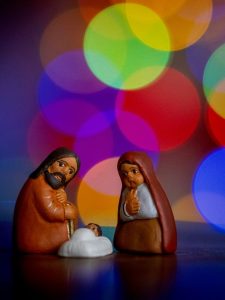 Every time I think of Christmas I think of snow, presents, Christmas trees and all the usual trimmings. Now why is that, when my true understanding of Christmas is more grounded? It is hard to get away from our commercialized Christmas when it is presented to us incessantly on TV and radio and in social media.
Every time I think of Christmas I think of snow, presents, Christmas trees and all the usual trimmings. Now why is that, when my true understanding of Christmas is more grounded? It is hard to get away from our commercialized Christmas when it is presented to us incessantly on TV and radio and in social media.
This year I want to concentrate on what I know to be true. God who made the world (and the whole universe) came to this little planet to become part of human history. He came as a little baby into a human family, and, from all accounts, not a very rich one. He came when the family was travelling, homeless, without shelter. I think our modern equivalent would be to be born as a migrant living in a tent under some railway bridge.
Facing this reality provokes a deep sense of gratitude. God did not need to assume the human condition at all, but by drawing close to us, God shows us the depths of his love and unending giving nature. I feel so small and unworthy in comparison.
At the heart of this holy season is the incarnation—the miracle of Emmanuel, “God with us.” In Jesus, divinity stepped into humanity. He came not to dwell in palaces but to walk among the lowly, the broken, and the forgotten. His birth reminds us that God’s love is not distant or abstract; it is personal, intimate, and accessible to all.
As I celebrate with my Sisters here in Drogheda, exchanging gifts, sharing meals, and creating memories, I want to pause to reflect on the ultimate gift: Jesus Christ. The lights that hang represent the Light of the World, who dispels darkness and offers hope. The joy I feel is a glimpse of the joy proclaimed to the shepherds on that first Christmas night: “I bring you good news that will cause great joy for all the people. Today in the town of David a Savior has been born to you; he is the Messiah, the Lord” (Luke 2:10-11).
Yet, Christmas is also a time to ponder what it means to follow Jesus. The humility of his birth challenges me to embrace simplicity and to live with compassion. The generosity of God’s gift calls me to extend kindness and love to others, especially those in need. And the peace proclaimed by the angels invites me to reconciliation and to seek harmony in our world.
As we, as the wider MMM community, celebrate Christmas, may we carry its message beyond the season. Let the hope born in Bethlehem ignite a lasting faith in our hearts. Let the love of Christ inspire us to serve others selflessly. And let the joy of His presence transform our lives, filling us with the assurance that no matter what challenges we face, God is with us.
by an early MMM Sister Nigeria 23.12.2024
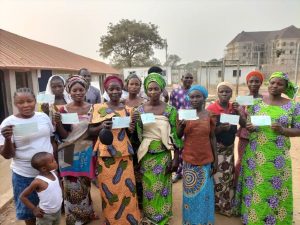 The Christmas Eve rush is almost over, and we begin to prepare ourselves to go across to the Mission Chapel to welcome the Divine Infant at Midnight Mass.
The Christmas Eve rush is almost over, and we begin to prepare ourselves to go across to the Mission Chapel to welcome the Divine Infant at Midnight Mass.
The nurses are tired but that does not prevent them from donning all their new Christmas style. Dressmakers and tailors are kept busy around Christmas, not with tweeds and woollens, but with prints and silks and voiles – for Christmas in the tropics comes at one of the hottest times of the year. I remember one Christmas Day seeing the altar candles wilt with the heat and gradually and gracefully lean sideways until they flopped completely and had to be hurriedly rescued one after the other by the altar boys.
So, in the warm tropical night we set out for the mission compound. Great noisy crowds have gathered round the school and are waiting impatiently for the signal to enter. In the bright moonlight we recognise many old friends and patients. All are dressed in their best. The teachers and nurses who are the belles of the place, and consequently leaders of fashion, cause quite a stir of admiration as they saunter along in their slow, dignified, Nigerian way and stand in groups where they can be seen to advantage. The brightness of the full tropical moonlight enables the admiring audience to get a good view.
The lateness of the hour has not kept the children away. They keep running in and out of the crowds, laughing and noisy while the quieter ones creep into the flower beds and, pulling just the heads of the flowers, string them together on long grass and wear them around their heads and wrists. Sleeping babies nod on their mothers’ backs while mothers sit in groups along the veranda and elsewhere.
Suddenly there is a moment’s hush when the school doors are opened and then the excitement begins again. All are wanting to get in quickly to get to their favourite places in the school. Most of them carry their own stools as the school seats could not possibly accommodate such an unusual crowd. The school has been decorated with palm, flags and banners. The Altar has been prepared with extra special care. There is an air of expectancy about everything and everyone for the gossip outside is not what has brought them here. They are hushed now, attentive and expectant. The priest comes out to the altar, the choir boys begin the “Adeste” and Christmas begins…
